Humans
Sign up for our newsletter
We summarize the week's scientific breakthroughs every Thursday.
-
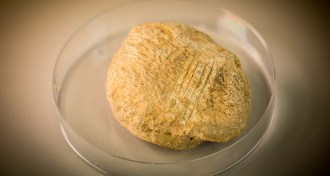 Archaeology
ArchaeologyBear bone rewrites human history in Ireland
A rediscovered bear bone puts humans in Ireland at least 12,600 years ago.
By Bruce Bower -
 Humans
HumansGelada monkeys know their linguistic math
The vocalizations of gelada monkeys observe a mathematical principle seen in human language, a new study concludes.
-
 Health & Medicine
Health & MedicineHere’s some slim science on temper tantrums
Scientists have mapped the structure of toddlers’ tantrums, but preventives are hard to come by.
-
 Neuroscience
NeuroscienceLeft brain stands guard while sleeping away from home
Part of the left hemisphere stands sentry while the rest of the brain and body snooze.
-
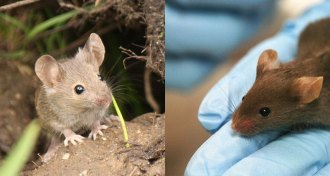 Health & Medicine
Health & Medicine‘Dirty’ mice better than lab-raised mice for studying human disease
Dirtier mice may better mimic human immune reactions.
-
 Anthropology
AnthropologyBelize cave was Maya child sacrifice site
Bones in Central American cave suggest many Maya sacrificial victims were children.
By Bruce Bower -
 Humans
HumansPieces of Homo naledi story continue to puzzle
Researchers defend Homo naledi as a new hominid species and debate how it reached an underground cave.
By Bruce Bower -
 Health & Medicine
Health & MedicineClusters of cancer cells get around by moving single file
Clusters of cancer cells squeeze through thin blood vessels by aligning single file.
-
 Science & Society
Science & Society‘House of Lost Worlds’ opens vaults of renowned natural history museum
'House of Lost Worlds' pays homage to Yale’s Peabody Museum of Natural History and to the colorful scientists who made the museum great.
-
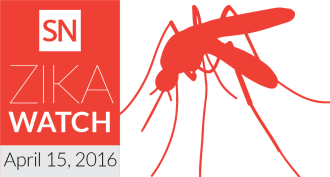 Health & Medicine
Health & MedicineThis week in Zika: Assessing risk, mosquito range, a transmission first and more
Several new reports document Zika infection in U.S. pregnant women, a case of male sexual transmission, the range of Zika-carrying mosquitoes and more.
By Meghan Rosen -
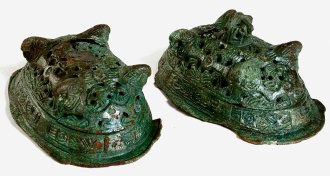 Anthropology
AnthropologyViking-era woman sheds light on Iceland’s earliest settlers
Viking-era woman accompanied island’s early settlers as a child from Scandinavia or Britain.
By Bruce Bower -
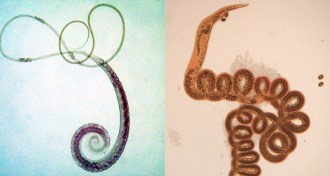 Life
LifeHaving worms can be good for the gut
Parasitic worms shift gut microbes and protect against bowel disease.